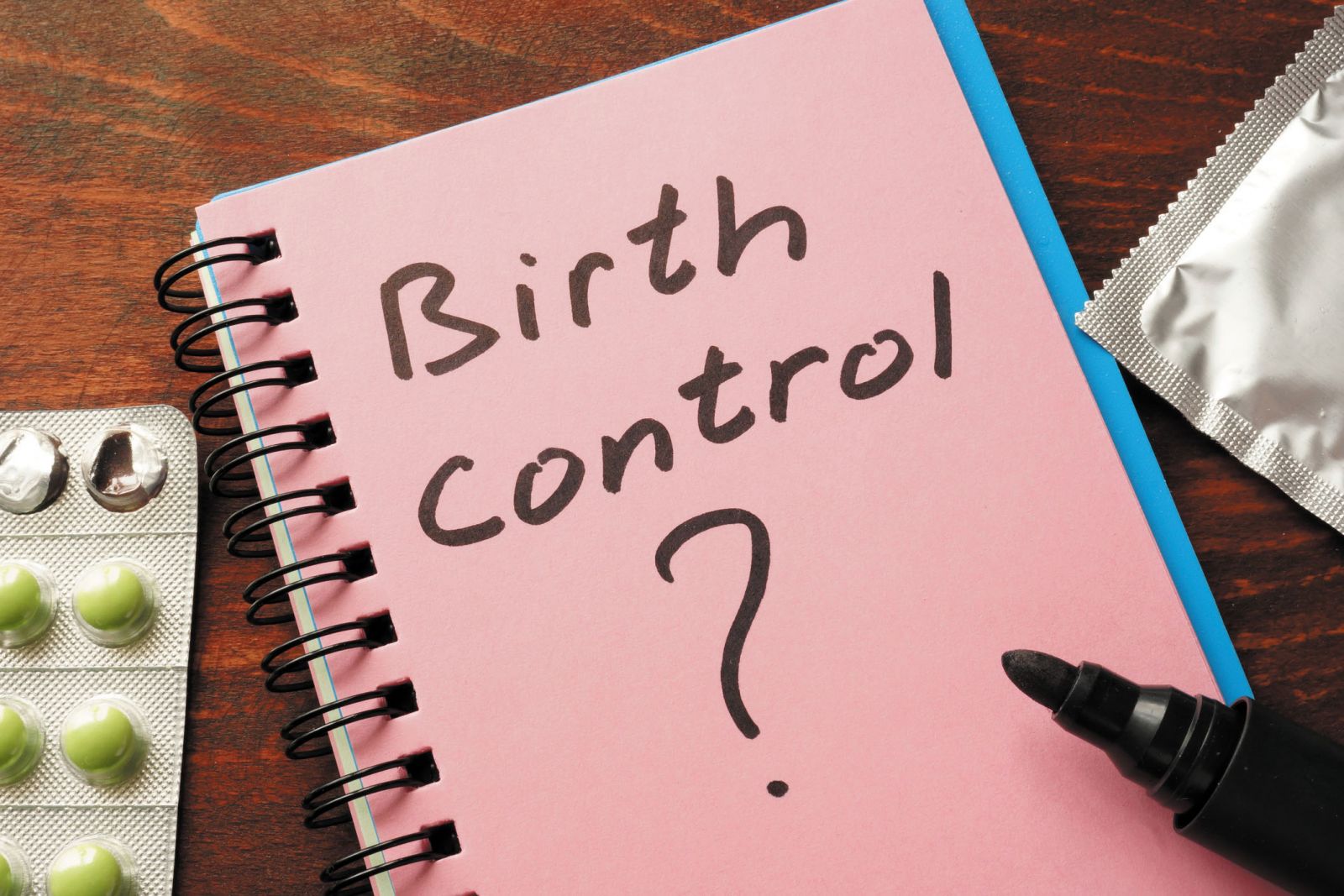
Facts and Myths on Birth Control & Weight Gain
Facts and Myths on Birth Control & Weight Gain
A lot of people believe that birth control makes you gain weight. You might have heard this from friends, seen it online, or even worried about it yourself. It’s one of the most common things people ask about when starting birth control.
Today, social media is full of videos and stories where people say they gained weight after starting the pill or another kind of birth control. Some even decide not to use birth control at all because they’re scared of gaining weight.
But is this true? Can birth control make you gain weight?
The short answer is that it depends. Some types of birth control might cause slight changes in weight for some people, but most of the time, it’s not as big of a problem as people think. Scientists and doctors have studied this a lot, and many types of birth control don’t cause weight gain at all.
In this blog, we’ll talk about what’s true and what’s not when it comes to birth control and weight. We’ll look at what science says, what to watch out for, and how to make the best choice for your body.
Let’s find out the facts and stop the confusion.
Does Birth Control Cause Weight Gain?
Women of childbearing age and healthcare professionals often hold this belief, but the research does not necessarily support it. Biological responses to medications are diverse. Medications can be highly effective for one person and virtually ineffective for another. This is something similar that happens with side effects. Aside from the fact that it is impossible to predict who will develop side effects from a medication, one person may gain a lot of weight. At the same time, another may not see any change, while another may even lose weight from the same medication. Let's take a closer look at the different types of birth control and how they affect weight, while remembering that despite the research that indicates that most people do not gain weight, the individual response is always possible, even if the majority of the studies show that, on average, most people don't gain weight.
Why Do People Still Believe This?
- Personal stories: If someone gained weight after starting birth control, they might think the birth control was the reason, even if it was due to other changes like diet or stress.
- Social media: TikTok and Instagram are full of posts where people share their experiences, but personal stories are not always proof.
- Life changes: Many people start birth control during times when their bodies are already changing, like in their late teens or early 20s, which can naturally affect weight.
Do IUDs Cause Weight Gain?
The idea of contraception through the intrauterine device (IUD) is not new. Still, there are two types: progesterone-containing (hormonal) and copper-containing (non-hormonal) devices. Regarding weight gain, copper IUDs have not been found to cause weight gain in women.
In some cases, women who use hormonal IUDs experience weight gain as a side effect and discontinue use. However, research on the impact of IUDs on weight gain suggests that the amount of weight gain experienced is not significantly different from the amount of weight gain experienced with placebos. After using LilettaR and MirenaR for more than a year, manufacturers of these two hormonal IUDs report that up to 6% of women have experienced weight gain from using them. Additionally, the average weight change appears to be modest, with one study finding that an average weight gain of just one pound was registered after a year of treatment. In contrast, another study found that an average weight gain of six pounds occurred after one year of treatment, compared to a weight gain of three pounds with a placebo.
Do Contraceptive Implants Cause Weight Gain?
Numerous studies have linked the contraceptive implant NexplanonR to weight gain. Clinical trials conducted by the manufacturer have shown that, on average, 14% of women in the study gained 2-4 pounds after 1-2 years of using the product, according to the manufacturer. According to another study, this number could be as high as 7 pounds on average. It is important to remember that averages don't tell the entire story, and some women will gain significantly more than the average. In contrast, others will gain considerably less, as many variables are involved. It has been found that as many as 20% of women who have the implant are discontinuing its use because of weight gain.
Would it be possible to gain weight if you took the combined contraceptives (the Pill, the Patch, or the Ring)?
Some birth control methods contain both estrogen and progesterone, and they are called combined contraceptives. There are several ways that these hormones can be delivered to the patient, depending on their preference, such as pills, patches, or vaginal rings. In a comprehensive review of multiple studies of combination contraceptives, a conclusion has been reached that, on average, these contraceptives do not cause significant weight gain due to their use. However, it is essential to remember that this is average, so it may not be the case for every woman. According to the prescribing information, some weight gain was reported during the clinical trials of certain products.
Does the Depo-Provera Shot Cause Weight Gain?
The injection of Depo-Provera (medroxyprogesterone acetate) has consistently been linked to significant weight gain when used as a birth control method. In clinical trials evaluating the drug's safety, 38% of women gained more than 10 pounds after two years of the injection, according to the manufacturer's prescribing information. Similar results were found in another study, which showed that after three years of injection, the average weight gain was 11 pounds, and after two years, it was 8 pounds. A study conducted by this group of researchers found that women who used Depo injections gained more weight in the midsection, raising their risk of developing conditions such as type 2 diabetes and cardiovascular disease.
How Does Birth Control Cause Weight Gain?
Women who use birth control tend to gain weight for various reasons. However, the research on this topic has been largely inconclusive. Scientists have considered water retention, estrogen-induced increased appetite, and progesterone-induced increased blood sugar levels as possible causes. However, it is vital to keep in mind that no reliable scientific research has ever confirmed any of these theories to be the cause of weight gain from birth control.
Is there anything you can do about weight gain from birth control?
The following steps can help you lose weight if you've gained weight from birth control:
- Give it some time. As your body adjusts to the increased estrogen in your system, your weight will stabilize again if the water retention theory is true. To track your weight loss progress and address any continued weight gain as soon as possible, it's essential to step on the scale regularly.
- Consume a diet that is low in calories. Losing weight has been proven to be effective when calorie intake is reduced. The goal should be to achieve this sustainably, as highly restrictive diets typically don't last long. You can generally lose weight by reducing portion sizes and eating healthier, low-calorie foods, such as fruits, vegetables, and lean proteins. A food tracking app can also help you become more aware of how much food you consume. If you're having difficulties losing weight, a Registered Dietitian can guide you on an appropriate diet.
- Take part in more physical activity. The most effective way to lose weight is to increase physical activity and create a calorie deficit. You can improve your physical activity level by taking aerobics classes or using a workout video at home, but don't overlook all the non-exercise activities you engage in. Even if you struggle to find time for dedicated exercise, you can easily get more physical activity into your day by parking farther away, walking your dog longer, and playing with your kids. As a result, more calories are burned!
- Consult your healthcare provider about alternative birth control methods. Simply because you experienced weight changes with one method does not guarantee that you will have the same response with another. Because there is a lot of variation among birth control options, some can cause weight gain more than others, so you may be able to choose another option that won't adversely affect your weight.
Frequently Asked Questions
Can birth control pills cause weight gain in teenagers?
Some teenagers may notice temporary bloating or changes in appetite when starting birth control pills, but research shows they usually do not cause long-term weight gain. Teen bodies are also still developing, which can make it hard to tell what's due to the pill and what's expected growth.
What is the best birth control for avoiding weight gain?
If you're worried about weight gain, non-hormonal IUDs or low-dose combination pills are good options. These methods have little to no connection to weight gain and are often recommended for people who are sensitive to hormone changes.
Why do some people gain weight on the Depo-Provera shot?
The Depo-Provera shot is the only birth control method linked to weight gain in studies. It may increase appetite and fat storage, leading to a weight gain of approximately 5 to 10 pounds over time for some users.
Is weight gain from birth control permanent?
Most weight changes related to birth control are not permanent. If you do gain a few pounds, it often disappear after a few months or when you switch to another method. Healthy habits also help maintain a steady weight.
How long does it take for birth control side effects like weight gain to show up?
If birth control affects your weight, it usually happens within the first 2 to 3 months. After that, your body often adjusts, and any bloating or minor weight changes may subside on their own.
Do hormonal IUDs make you gain weight?
Hormonal IUDs like Mirena or Kyleena rarely cause weight gain. Some people may feel bloated at first, but studies show that this is not typically associated with significant weight changes for most users.
What are the signs that birth control is affecting my weight?
If you suddenly feel hungrier, notice bloating, or gain more than 5 pounds in a short time after starting birth control, it might be a side effect. Still, it’s essential to consider other lifestyle factors as well, such as diet, stress, and sleep.
How Can Weightloss Coach Help You With Weight Gain from Birth Control?
Weightloss Coach recognises that several medications, including various birth control products, have a role to play in weight gain. Using evidence-based methods, the Obesity Medicine Physicians at Form Health develop individualised programs for patients based on their medical history and the amount of medication they have taken in the past. In the initial process, you will be asked whether you are taking any medications or birth control to see if that has contributed to weight gain.


